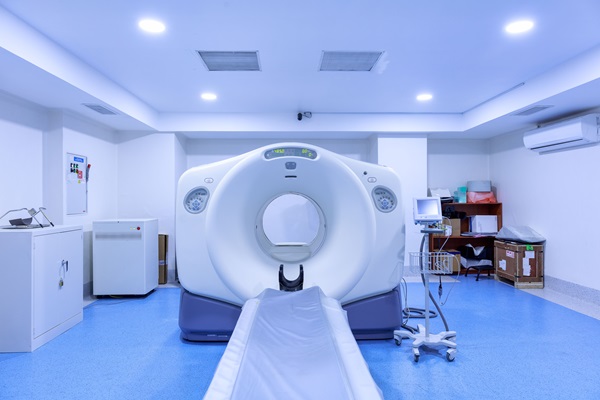What Can an Urgent Care Do for a Cold or the Flu?

You might need urgent care services if you have a severe cold or flu. Influenza, commonly known as the flu, is a respiratory infection caused by a contagious virus. The two main flu viruses that affect humans are the influenza virus A and B. These viruses typically spread through respiratory droplets. They can also be spread by touching contaminated surfaces and transferring the virus to areas like the mouth, nose, and ears. The virus tends to circulate most from around November to May each year.
The common cold is also a respiratory infection, but rhinoviruses often cause it. It shares many symptoms with the flu, like sneezing, sniffling, and a running nose. Colds typically last for shorter periods than flu infections and are often less severe. However, a severe cold sometimes leads to more severe medical issues like pneumonia, bronchitis, or a sinus infection when not properly treated.
How an urgent care provider treats a severe cold or flu infection
A person is more likely to need medical care for the flu. Some of the symptoms people with influenza typically report include:
- Upset stomach
- Fatigue
- Runny nose and congestion
- Headache
- Sore throat
- Chills
- Fever
- Cough
Symptoms of influenza typically start to appear a day after the infection. Most people recover from it in about a week. Symptoms of a common cold typically take longer to appear, but the infection is typically gone in a few days.
Figuring out if you need urgent care for a cold or flu
People with mild to moderate flu cases often do not need medical care since over-the-counter medication can be used to manage its symptoms. However, given the current global pandemic, it is prudent to get tested if you have flu-like symptoms to determine if you have influenza or COVID-19.
Some of the symptoms that indicate that an influenza infection might require urgent care include:
- Severe chest pain
- Bluing of the face and lips
- Difficulty breathing
- Confusion
An urgent care or primary care provider can help manage severe flu cases by providing antiviral treatments. These medications reduce the severity of symptoms experienced while shortening how long the infection lasts. However, antiviral drugs do not directly treat the infection.
Depending on the symptoms being experienced, a primary care physician might also administer steroid injections. Diagnostic tests like x-rays might also be performed to determine if the patient has developed a secondary infection like bronchitis or pneumonia.
Anyone who has been diagnosed with the flu should avoid contact with others for up to a week after their first symptom shows up. They can still infect others during this period even if they no longer feel feverish. Simple things people diagnosed with the flu can do to speed up their recovery include drinking lots of water, taking vitamin supplements, and getting lots of sleep. Over-the-counter painkillers can be used to manage any fever or pain caused by the illness.
Preventing the flu
Patients can protect themselves from severe flu infections by getting vaccinated each year. The influenza virus is constantly evolving, so vaccines have to be made annually to protect against the most common strains of the virus circulating each year. These vaccines do not protect against all strains of the virus, but they significantly reduce the risk of getting a severe flu that requires urgent care or hospitalization. It also reduces the risk of death due to a flu infection.
Doctors usually recommend getting vaccinated for the flu around October each year. It takes up to two weeks for a person’s immune system to enjoy the full benefits of vaccination, so getting vaccinated right before flu season offers the most protection.
Flu vaccines work by introducing inactive or dead flu viruses into a person’s body, prompting their immune system to fight them off. This increases the immune system’s ability to address a real infection. There is a common myth that a person can be infected with the flu virus via a vaccine, but that simply is not true. There is no way to be infected by a vaccine since only dead or inactive viruses are used. What people often confuse with an infection is their immune system addressing the virus. This often results in side effects like a mild fever, which leads some people to think they have been infected.
Get the urgent care you need
People who experience symptoms like chest pain, difficulty breathing, or severe fever with a cold or flu infection need urgent care to prevent the infection from causing other issues. Give us a call or drop by our New Caney clinic to set up an appointment.
Request an appointment here: https://tx-urgentcare.com or call Texas Urgent Care & Imaging Center at (832) 941-1894 for an appointment in our New Caney office.
Check out what others are saying about our services on Yelp: Read our Yelp reviews.
Recent Posts
X-rays are popular tools medical professionals use to diagnose a wide range of health conditions quickly and safely. They allow these professionals to see inside the body without invasive procedures, making them invaluable in urgent and primary care settings. Whether identifying fractures, monitoring chronic conditions, or detecting abnormalities, X-rays are critical in ensuring timely and…
A CT scan, or computed tomography scan, is a diagnostic tool that provides detailed images of the body’s internal structures. This non-invasive procedure helps medical professionals diagnose and monitor various conditions, from injuries to chronic illnesses. Knowing what to expect during a CT scan can ease concerns and prepare patients for a smooth experience.A CT…
If you work in public transportation, you may need to have a DOT drug screening. The Department of Transportation (DOT) regulates this test and requires it for you. You might be wondering what this test is like. Keep reading to learn more.Congress passed the Omnibus Transportation Employee Testing Act in 1991. Congress knew that the…
Walk-in clinic provide convenient, accessible health care for non-emergency medical needs, making it an ideal choice when immediate attention is necessary. Understanding when to visit a clinic can help patients save time, avoid unnecessary trips to the emergency room, and receive quality care for their health concerns. These clinics handle various issues, offering fast, professional…


